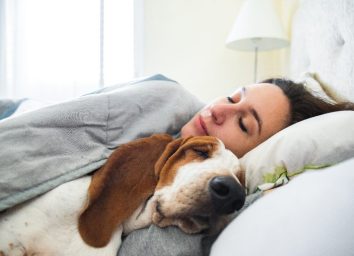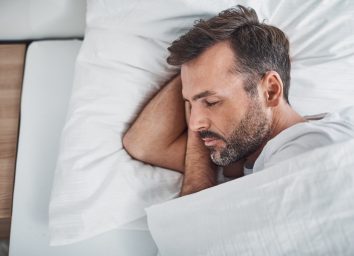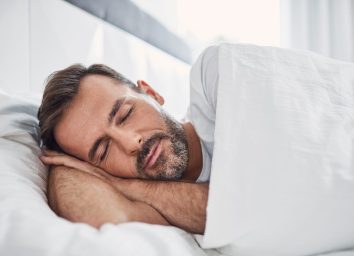Can’t Sleep? These Are The 3 Best Tips For A Better Night’s Rest
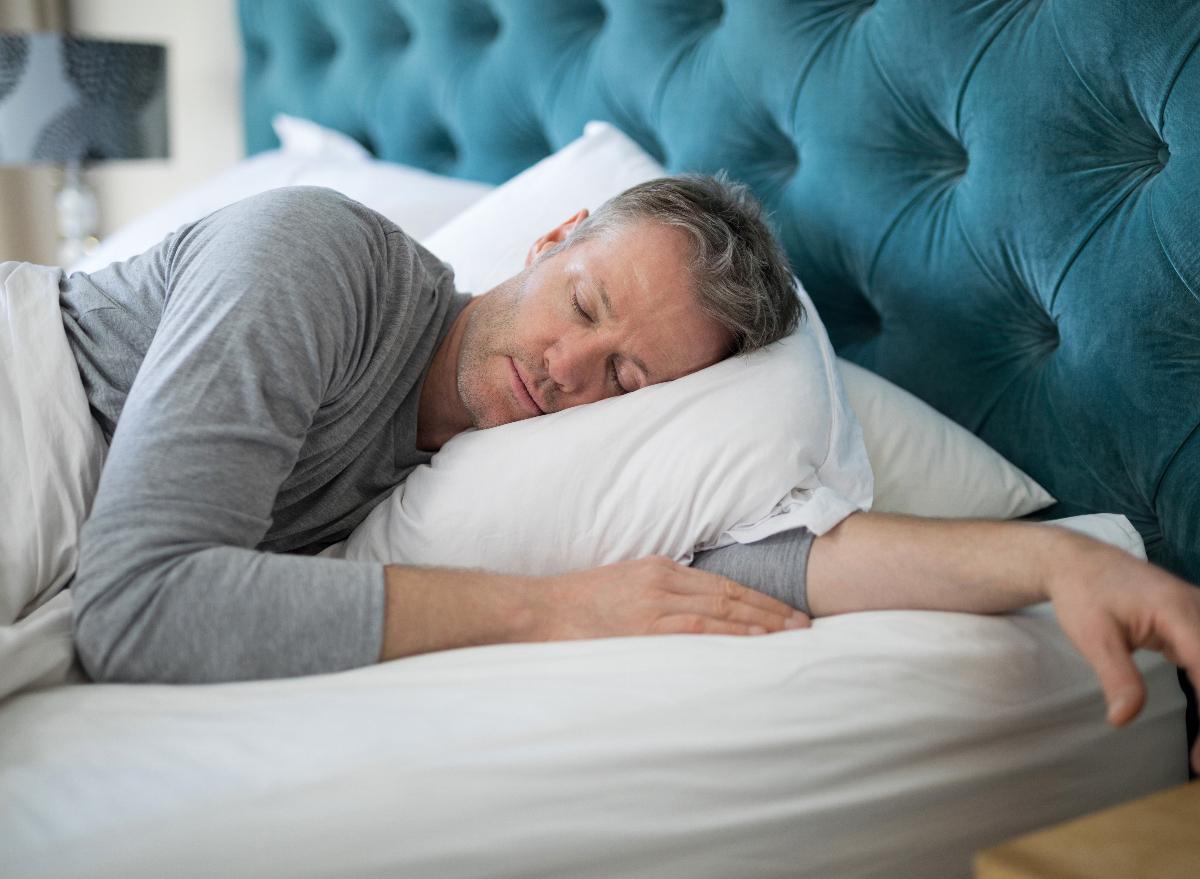
Ever doze off into a sound sleep while Netflix-ing on the couch, only to wake up and be unable to fall asleep when you go to bed? Or, you may have had the longest day ever, and the only thing you can think about is sleep, but alas, when your head hits the pillow, you just can’t sleep. Not being able to snooze into dreamland is one of the most frustrating things to experience, and you’re not alone. That’s why we’ve rounded up the best expert-approved tips to incorporate into your bedtime regimen if you can’t sleep.
According to American Sleep Association, 50 to 70 million adults in the United States have trouble sleeping. Sleep disorders come in many shapes and forms, and they affect an alarming number of people. There are many health conditions that can develop as a result of not getting the normal 7 to 9 hours of sleep needed for adults, including stroke, heart disease, type 2 diabetes, obesity, and high blood pressure. And that’s not the extent of it.
Data put together by the American Sleep Association reveals 4.7% of individuals reported dozing or nodding off while behind the wheel of a vehicle at least once the month before the information was collected. Driving when feeling sleepy is the reason for 1,550 deaths and 40,000 injuries each year in the U.S. The statistics also reveal 37.9% of individuals with sleep issues fall asleep at some point during their day the previous month. One extremely disturbing fact in the data is there are 100,000 deaths annually in hospitals throughout the country of which sleep deprivation and medical errors are a large contribution.
We spoke with Colin Espie, PhD, Co-Founder and Chief Scientist of Big Health and Professor of Sleep Medicine at the University of Oxford to find out some key bedtime rituals to do if you can’t sleep. Espie shares some solid advice on getting good quality Z’s. Read on to learn more, and next, check out The 6 Best Exercises for Strong and Toned Arms in 2022, Trainer Says.
Establish a personalized sleep schedule
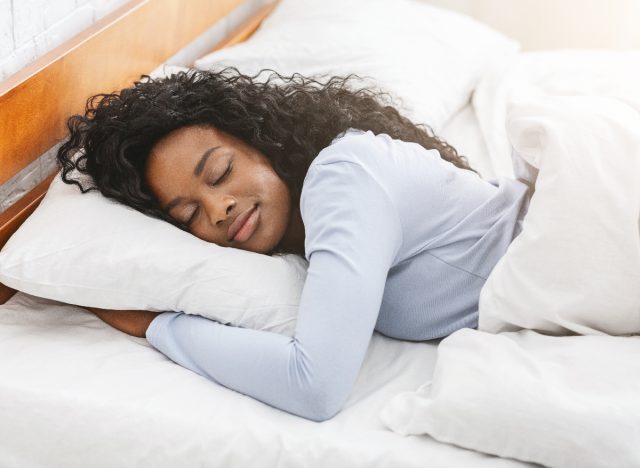
It’s important to create a personalized sleep routine. Espie advises, “Take the time to experiment with and figure out your natural body rhythms. Forcing yourself to go to bed early or stay up late when it feels unnatural is counterproductive and can cause stress and worsen sleep problems.”
Related: The Underrated Benefits Of Good Sleep You Haven’t Heard About, Expert Says
Be more sleep efficient
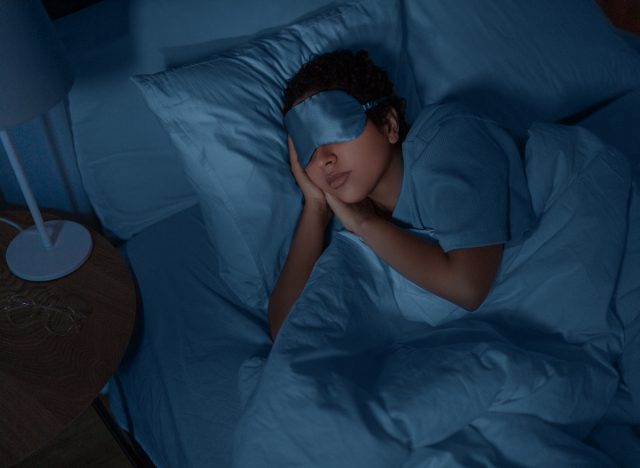
Working on becoming more sleep efficient is crucial. Espie points out, “Are you spending nine hours lying in bed, but only six actually sleeping? If so, your sleep efficiency is 66% and could use some improvement. If you get frustrated by actively trying and failing to fall asleep, get out of bed, and do a relaxing, non-stimulating (no gadgets!) activity such as reading or meditating before getting back in bed and trying again. And if you naturally wake up at 5:00 am feeling rested, you should feel empowered to get up and start your day. As your sleep efficiency increases, you’ll get good insight into your personalized sleep schedule.”
Related: The Best Clothes To Wear For A Better Night’s Sleep, Expert Says
Focus on how you can nurture productive sleep
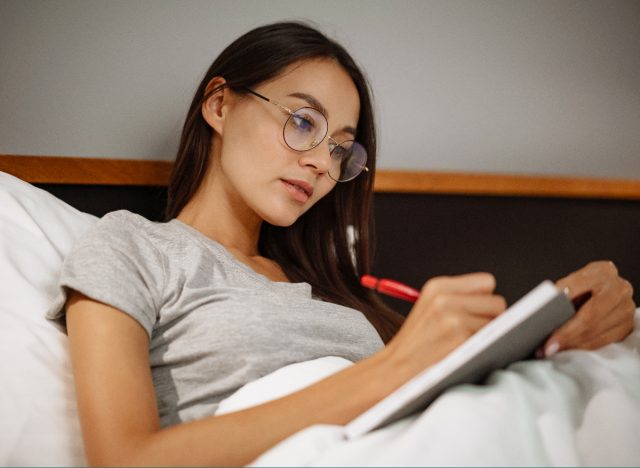
Try to focus on how you can nurture productive sleep. Espie suggests, “Put your day to rest! By spending 10 minutes or so in the evening tying up loose ends from your day—such as making a list of everything you need to do tomorrow—you can quiet a racing mind and fall asleep faster. This is an excellent example of cognitive-behavioral therapy for insomnia, which is a scientifically proven approach that can help you sleep better.”
Create a routine to wind down at night. This is an additional behavioral approach that may work, Espie reveals. The routine can be any one technique or a combination of things, including breathing exercises, a reduction of blue light (from smartphones or TVs), and purposely relaxing when you snuggle up under the covers. Listening to calming sounds or soft music may relax you. It’s beneficial to test out what works best for you.
For more…

For more mind and body news, check out 3 Subtle Red Flags Your Strength Training Workout Isn’t Effective and Build Pecs Fast With This 3-Step Exercise Routine, Trainer Says.
